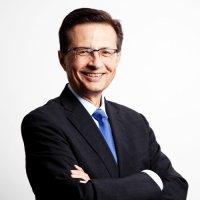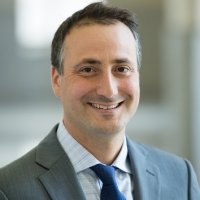The Future of Health in Latin America: Getting to Work on the Workforce
The COVID-19 pandemic has exposed critical deficiencies in health systems across Latin America. The regional average for public healthcare expenditure is just 3.7 percent of GDP, well below the 6 percent recommended by the Pan American Health Organization (PAHO). Inadequate spending and investment in public health infrastructure has been visible during pandemic peaks in overflowing hospitals, where gravely ill patients have struggled to find available intensive care unit beds and lifesaving equipment, including ventilators. Less noticed, but just as grave, is Latin America’s undersupply of health care professionals, which has complicated the pandemic response throughout the region.
Latin America averages two doctors for every 1,000 people, half the number for Organization for Economic Cooperation and Development (OECD) nations. Many countries in the region struggle to train and retain doctors and nurses. The pandemic has compounded these challenges; as the coronavirus battered Latin America’s frontline medical workers, health systems from Mexico City to Manaus faced severe personnel challenges.
How should Latin American governments prioritize medical training and hiring in a time of scarce resources? How should public health systems address short-term personnel needs, including through new technologies? What is the role of the private sector in addressing this shortage? What incentives will slow brain drain from Latin America? To learn the lessons learned during the pandemic and the possibilities for reform, please join us on Monday, July 26 from 9:00 am to 10:00 am ET for a conversation hosted by the Wilson Center’s Latin American Program and co-sponsored by UnitedHealth.
Speakers



Moderator

Hosted By

Latin America Program
The Wilson Center’s prestigious Latin America Program provides non-partisan expertise to a broad community of decision makers in the United States and Latin America on critical policy issues facing the Hemisphere. The Program provides insightful and actionable research for policymakers, private sector leaders, journalists, and public intellectuals in the United States and Latin America. To bridge the gap between scholarship and policy action, it fosters new inquiry, sponsors high-level public and private meetings among multiple stakeholders, and explores policy options to improve outcomes for citizens throughout the Americas. Drawing on the Wilson Center’s strength as the nation’s key non-partisan policy forum, the Program serves as a trusted source of analysis and a vital point of contact between the worlds of scholarship and action. Read more


Argentina Project
The Argentina Project is the premier institution for policy-relevant research on politics and economics in Argentina. Read more


Brazil Institute
The Brazil Institute—the only country-specific policy institution focused on Brazil in Washington—aims to deepen understanding of Brazil’s complex landscape and strengthen relations between Brazilian and US institutions across all sectors. Read more


Mexico Institute
The Mexico Institute seeks to improve understanding, communication, and cooperation between Mexico and the United States by promoting original research, encouraging public discussion, and proposing policy options for enhancing the bilateral relationship. A binational Advisory Board, chaired by Luis Téllez and Earl Anthony Wayne, oversees the work of the Mexico Institute. Read more

